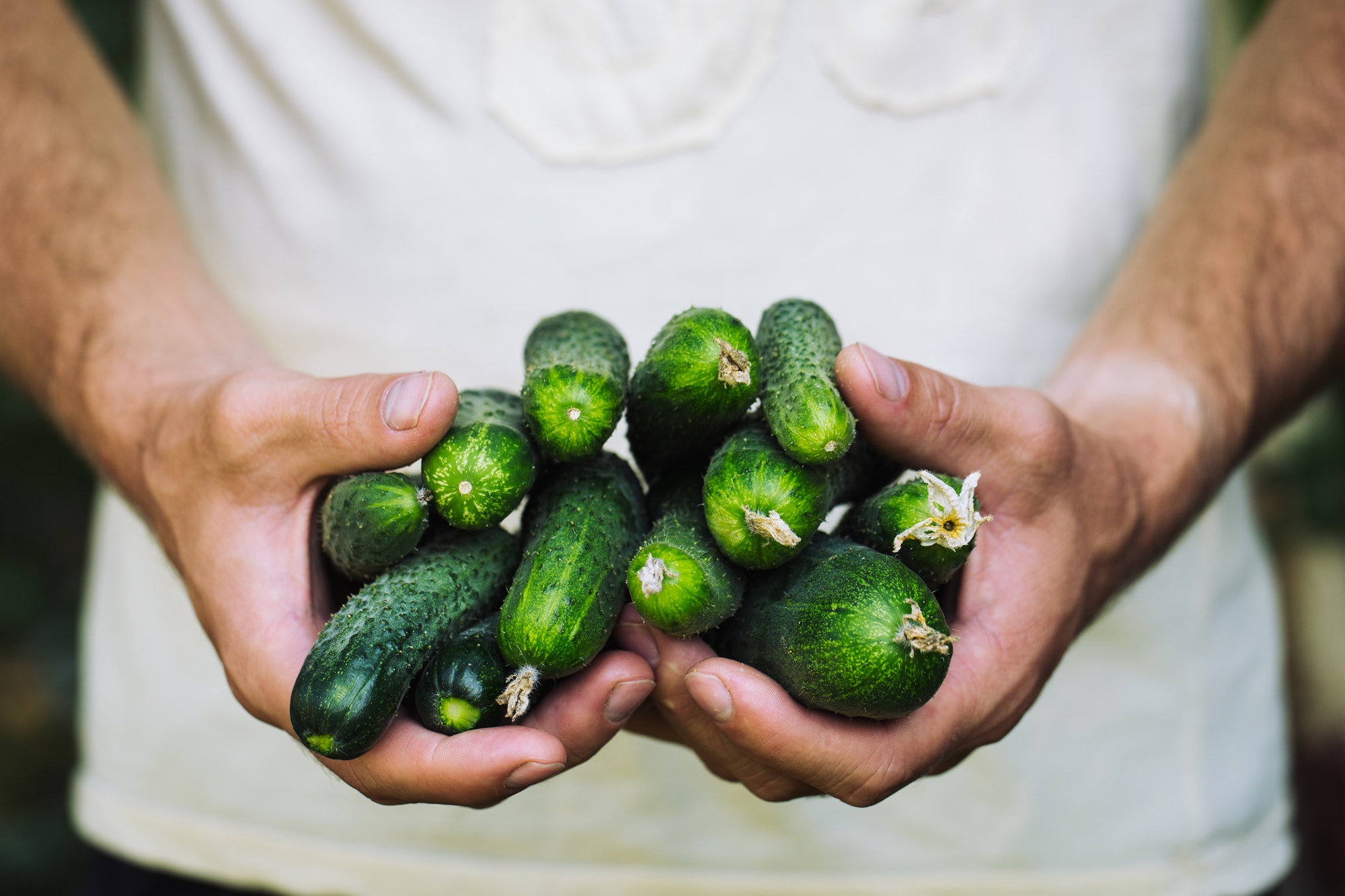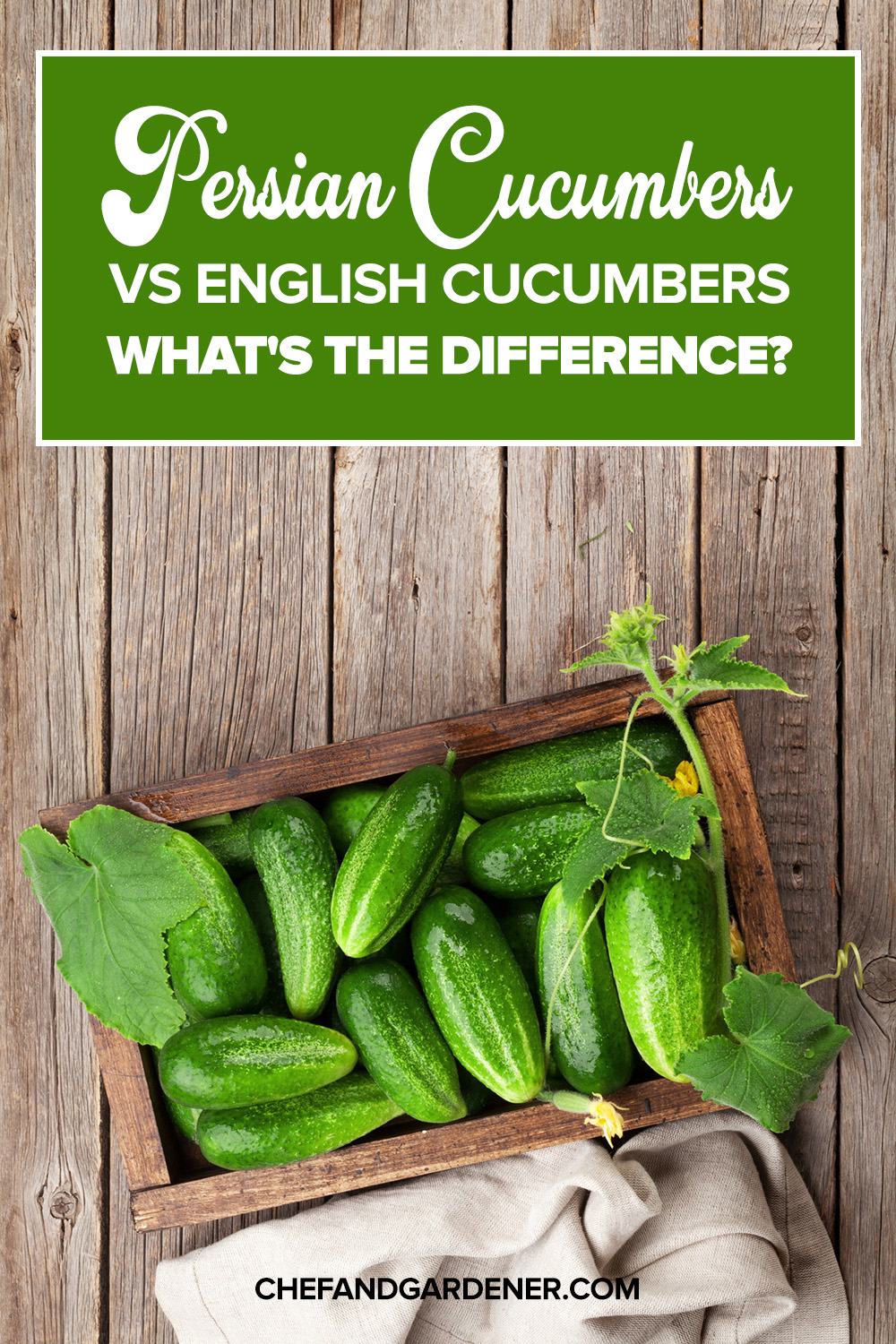Table of Contents
What makes Persian cucumber different from others? There are various types of cucumber but nowadays Persian cucumber seems to be the most chosen for stir-fries and salads, this might be due to its distinct taste and also Persian cucumber comes in a greater range of length, some shorter, some are longer, and sometimes with slightly bumpy skin like a Kirby.
Persian cucumbers are very similar to English cucumbers, both have a pretty strong similarity and the big difference is the length of Persian Cucumber.
Persian cucumber has a mild flavor and thin skins though and it is often wondered what makes it so different from other cucumbers.
This article contains all you need to know about a Persian cucumber and maybe they are worth substituting for other cucumbers.
A Persian cucumber is becoming more and more popular for different reasons, there is so much to explore and do with Persian cucumber, below are some of the things that makes a Persian cucumber special and different from others.
What is a Persian cucumber?
Persian cucumbers are thin-skinned and botanically classified as Cucumis Sativa, these are members of the Cucurbitaceae, or gourd family and they can grow to be only about five to six inches and remain quite narrow.
Persian cucumbers are also referred to as baby cukes and are nearly seedless with extra crisp and rather than being watery, it instead has a mildly sweet flavor that is easy to love and choose over other cucumbers.
Persian cucumbers are cylindrical and squat with sn average length of 10-15 centimeters, the outer skin is dark green just like an English cucumber and thin with visible shallow ridges, and the inner flesh of Persian cucumber is light green with a firm and moist texture and very much seedless.
Persian cucumber has a pronounced crunch and also Persian cucumber is actually a fruit although though to be a vegetable.
Can you eat Persian cucumbers raw?
You can either have your cucumber pickled or sliced to enjoy but a Persian cucumber has very soft seeds and thin skin and they do not require seeding or peeling for eating and also they are not good for pickling, as their soft texture means they can turn to mush while trying to peel and their thin skin makes it easy to eat raw hence no need to peel.
Persian cucumbers are deliciously crunchy when sliced and eaten raw.
Does Persian cucumber taste different?
Most people do prefer Persian cucumber to other types of cucumber, Persian cucumber has become a flavored variety of burpless cucumbers.
There are different varieties of cucumber available but Persian cucumber has a sweet taste which makes it most preferred, it is almost seedless with a crunchy texture a versatility compared to the common Noth American Cucumber which has many inedible seeds and a watery taste.
Do you need to peel Persian cucumbers?
Persian cucumbers are pretty much seedless and too thin to worry about peeling them and it has a nice healthy skin that can easily blend into a meal, eating it with the skin provides the maximum amount of nutrients.
IT contains antioxidants for healthy radiant skin, promotes hydration and may lower blood sugar which means you do not have to worry about peeling off its skin.
What Makes Persian Cucumber Different English Cucumbers?
There are different varieties of cucumbers like English, Persian, Lemon, Kirby, Armenian and Japanese but these days Persian cucumbers are becoming the most cultivated cucumber.
Persian cucumber originated in Persia just as its name implies and it’s cylindrical in shape and squat, it’s skin is also pretty thin which makes it easy to chew compared to other cucumbers.
Persian cucumber can be eaten with or without its skin because of their smooth skin and the flavor tend to remain the same and this also makes it great for salads or as slices to scoop up the dip.
The average length of Persian cucumber is around 5 to 6 inches and if it is allowed to grow bigger, bitter seeds that might compromise the flavor tend to develop.
Another difference between a Persian cucumber and others is that it is usually sweeter and considered to be very easy to digest with a very pleasant taste, this cucumber has a smooth outer skin which is dark green and the cucumber themselves are crunchy and sweet.
Health Benefits Of Persian Cucumber
Health benefits are the reasons why you should consume more of Persian cucumber, they are rich in nutrients and are good if you are trying to lose weight, it contains antioxidant and there are just 16 calories in a cup of Persian cucumber with its peel and 15 without.
Here are amazing health benefits of Persian cucumber that might convince you to eat more of it.
- Better skin and hair: Persian cucumber consists of 4 percent of your daily potassium, 3 percent of your daily fiber and 4 percent of your daily vitamin c which provides you with glowing skin and hair when eating every day. It also a source of different nutrients like water, potassium, sulfate, vitamin A and C and anti-inflammatories that soothe and calm skin conditions like sunburn. They can also soothe skin puffiness early in the morning or get rid of circles under your eye.
- Healthy Kidney: Persian cucumbers are famously known to be a healthy heart cleanser, it washes the kidney, and bladder of debris and stones. Studies have shown that eating these cucumber helps to regulate the uric acid in the body which in turn prevents kidney and bladder stones
- Reduce Blood Sugar: This nutritious vegetable could help reduce the risk of diabetes as it contains high fiber content, it consists of a certain substance that helps the pancreas to produce more insulin in the body.
- Aids Digestion And Constipation: Persian cucumber aids digestion and constipation as it contains fiber and water which helps to regulate bowel movement. The high water content and insoluble fiber contained in cucumber are very effective in ridding the body of toxins and also aiding the digestive system in the process.
- Cancer Prevention: Cucumber contains a high level of bitter-tasting nutrients known as cucurbitacin and according to research, this may prevent cancer by stopping cancer cells from reproducing. A Swiss study also found Persian cucumber to be most effective among other fruits and vegetables for significant protection against cancer.
- Weight Loss: Persian cucumbers are very low in calories and serve as fat-free food, which makes them ideal for hydration and weight loss, you can eat as much Persian cucumber as you want without the fear of gaining weight and also the soluble fiber contained in it dissolves into a gel-like substance in your gut and slows down digestion and in turn, you feel full longer.
- Reduces Stress: Persian cucumber can help reduce stress greatly, it contains multiple B vitamins and including, vitamin B1, vitamin B7, biotin and Vitamin B5 which are all known to help the feelings of anxiety and lessen some of the damaging effects of stress.
- Pain Relief: Persian cucumbers are a source of anti-inflammatory properties such as flavonoids which are known to be powerful pain-reducing substances and can be found in a Persian cucumber, which is specifically known for reducing toothache, and it also contains some compounds that resist the proliferation of free radicals in the body.
Persian cucumbers are a lot similar to English cucumber than other types of cucumber but they taste better however you should know that Persian cucumber could also taste bitter if not cultivated properly, as they are extremely susceptible to frost damage or allowed to grow bigger than it’s usual 4 to 5 inches.
Cucumbers occasionally cause people to burp but Persian cucumber is seedless so they are referred to as ”burpless”.
Persian cucumbers are usually sweeter and have thin skin compared to other cucumbers. Persian cucumbers are also very crunchy and firm which makes them viable for cooking, try adding them to your stir fry.
Keep reading:


